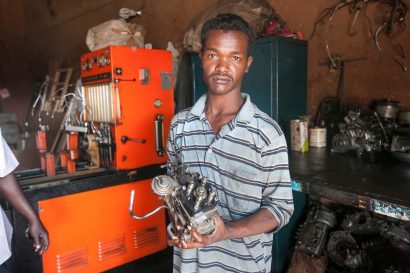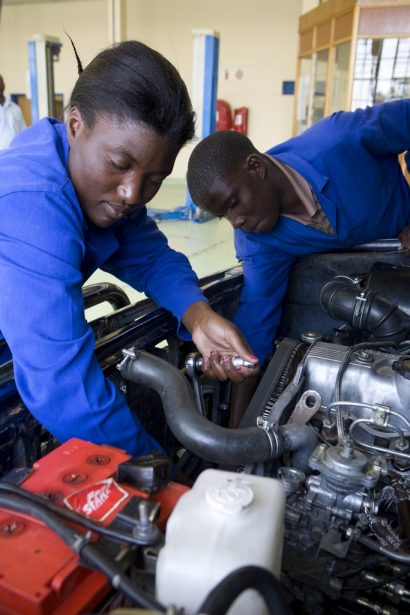 Adult, Higher and Vocational Education
Adult, Higher and Vocational Education
Skills have become increasingly important in the globalised world. Vocational and technical skills are essential, but employers are seeking applicants with wider skills. This Guide is designed to guide readers through the key issues in identifying the relevant core skills for employability, understanding their importance and ways these skills can be delivered, attained and recognised. An ILO… Read more
This paper analyses the contribution of Open Educational Resources (OERs) to building 21st century skills and explores the value of tutoring and mentoring models, learner retention, learning technologies, and provision of language and subject matter support that best mediate higher level learning in fragile contexts. Variables such as sustainability, operability, equal access, cultural and linguistic… Read more
The issue Higher education has seen astounding growth across the world in recent decades, and about a third of the population globally now go on to some form of post-secondary study. Yet while there are increasing participation rates in all regions there remain significant disparities, with a gross enrolment ratio of 68% in Europe, 23%… Read more
Many countries mandate affirmative action in university admissions for traditionally disadvantaged groups. Little is known about either the efficacy or costs of these programmes. This paper examines affirmative action in engineering colleges in India for “lower-caste” groups. The authors argue that such action successfully targets the financially disadvantaged: the marginal upper-caste applicant comes from a… Read more
Adult refugees with limited education are a distinctive learner group with substantial and distinctive educational, social, and psychological needs. Working with these learners is a highly specialised activity, requiring high levels of educational skill and commitment. With a paucity of original research available about this group of learners, this study provides a systematic documentation of… Read more
For over 15 years, the Norwegian Refugee Council (NRC) has supported out of school children and youth to regain access to schooling by supporting Alternative Education (AE) programming. Such programming has been and continues to be implemented across a number of the countries and regions in which NRC is responding to humanitarian and early recovery… Read more
On the occasion of the 15th anniversary of the Albert Einstein Academic Refugee Initiative (DAFI) Programme, this study has been executed to evaluate the past progress of DAFI implementation and identify strengths and weaknesses in the overall strategy. Specifically, the study examines whether DAFI graduates have contributed to reconstruction of conflict regions upon repatriation, or to integration… Read more
The purpose of this paper is to present findings from the evaluation of a pilot programme, Jesuit Commons: Higher Education at the Margins (JC:HEM), which initially provided higher education to refugees in Kakuma Camp, Kenya and Dzaleka Camp, Malawi; and to urban refugees in Amman, Jordan. The authors of this note review the progress made… Read more
This paper is primarily concerned with raising a higher level question about the nature of knowledge and evidence used in planning, implementing and evaluating skills reforms. The paper notes the very high level of official optimism about the benefits of the governance reform process but the real lack of hard evidence across the region for… Read more
This paper notes the very limited evidence that exists for national qualification frameworks (NQFs) having had successful impact, yet also acknowledges the continued faith in them as an answer to failing skills systems. The author notes that there has been relative success but that it has to do with good initial starting conditions. Thus, Scotland,… Read more
This document includes three papers. The first ‘Sector Skills Councils: Can they enhance employer engagement in skills development systems?’ reviews the case of sector skills councils (SSCs). The authors review the argument that a productive approach to linking skills supply and demand requires a focus on generating and sustaining a high skills equilibrium, a situation… Read more

 Adult, Higher and Vocational Education
Adult, Higher and Vocational Education











